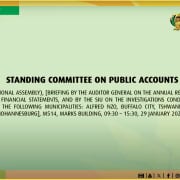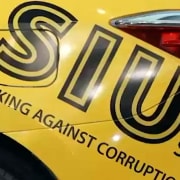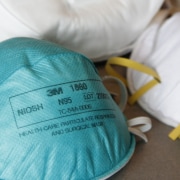|
Getting your Trinity Audio player ready...
|
The Standing Committee on Public Accounts (Scopa) met at the end of February to receive a briefing from the Special Investigating Unit (SIU) on the results of its investigations into irregularities relating to the Temporary Employee Relief Scheme (TERS). This scheme was established under the Unemployment Insurance Fund (UIF) to provide relief during the Covid-19 pandemic, supporting employees whose services would not be used during lockdown because of the disaster regulations that designated only certain industry sectors and workers as essential. It was part of a R500-billion emergency fund set aside by the government as a response to the Covid outbreak.
Procurement regulations were also relaxed and predictably, some saw this as a golden opportunity to cash in, with companies springing into life literally overnight and scoring lucrative tenders without any prior history or experience in, for instance, the protective equipment industry. It wasn’t long before instances of both procurement and TERS corruption began to emerge – which were exacerbated by existing administrative weaknesses in both the public procurement and UIF internal control environments and systems in general.
Corruption Watch (CW) was one of the many voices calling for oversight of the use of the emergency funds.
This did not happen and some months into the lockdown, President Cyril Ramaphosa duly authorised the SIU to investigate alleged misuse of the money through Proclamation R23 of July 2020, which has been finalised, and Proclamation R8 of April 2021, which is ongoing.
Under the first proclamation the SIU was to investigate allegations of maladministration during the procurement of media buying, the rendering of services, and the appointment of five media houses to run the UIF’s radio advertising campaign to create awareness on TERS. The second one directed the SIU to investigate maladministration in relation to payments to entities and persons who were not entitled to receive the benefit and submitted defective, false, and irregular applications, as well as improper conduct by officials.
Media mayhem
SIU head Andy Mothibi told Scopa that the UIF’s bid adjudication committee (BAC) failed to carry out its responsibilities in the procurement of media, and “contravened section 217(1) of the Constitution because the five procurement pillars of the Constitutions were not complied with”. The selection and appointment of the five media houses, said Mothibi, were not fair, transparent, equitable, competitive, or cost-effective.
Furthermore, according to information provided by the Independent Communications Authority of South Africa, the UIF was supposed to procure the media services through an open tender process. Instead, the tender was awarded on a closed basis because the BAC had requested a deviation from normal procurement processes, which request was found to be misleading. Instead, the UIF ended up with irregular expenditure to the value of just over R6 100 000 for payment to the five media houses.
Based on these findings, the SIU recommended that nine senior officials be issued with written warnings or final written warnings, and in three of those cases – the UIF’s commissioner, CFO, and supply chain management director – docked a month’s salary on top of a final warning.
Committee members asked if it had been necessary for media services to be procured from external suppliers instead of doing it in-house. They also asked why no action had been taken against the BAC members who made the misleading claims.
TERS turmoil
The TERS investigation is based on 26 key audit observations that were identified from the three special real-time Auditor-General of South Africa (AGSA) reports into Covid funding. These were released in September and December 2020, and June 2021. The investigation is split into two phases focusing respectively on individuals and entities who claimed for and received TERS benefits. The former group includes government employees, South African National Defence Force members, and deceased persons.
In addition to the AGSA audit findings, CW and the UIF provided the SIU with ad hoc matters which included allegations against entities and individuals as received from whistle-blowers. Our contribution was based on over 100 complaints received between March and November 2020, specifically relating to allegations of TERS corruption. We published those stories in our January 2021 report titled Covid-19 TERS: Corruption at Work.
The SIU identified over 6 000 employees within 24 government departments, as well as 760 entities, who claimed for and received TERS benefits. In most of the cases, identification documents were fraudulently used to receive TERS, in contravention of section 18 of the Identification Act which deals with offences and penalties.
Some government employees did undeclared remunerative work for other companies after hours, while using those companies to claim TERS benefits. Other government employees used their own undeclared companies to claim benefits. Some schools made claims on behalf of their temporary teachers. The SIU also found that some foreigners had used the stolen ID numbers of prisoners to make fraudulent TERS claims, and that some companies claimed on behalf of their former employees, whom the SIU found to have been incarcerated at the time.
The money lost amounted to around R351-million.
Referrals were made to the National Prosecuting Authority (NPA) and the Department of Home Affairs (DHA). Thus far, the SIU has been able to recover over R229-million.
Of the nearly 7 000 matters under investigation in total, said the SIU, 4 624 have been finalised. However, only 174 were referred to the NPA, and committee members were disappointed and questioned this development. The low number and the fact that no dismissals were reported, said members, highlighted the issue of applying effective and commensurate consequence management across government departments.
The investigation is ongoing and completion is expected in December 2025.
Recommendations
The findings to date, said the SIU, show that the Department of Employment and Labour (DoEL, then the Department of Labour) did not do due diligence when administering UIF TERS applications and payments. Other irregularities point to the lack of adequate in-house skills to deal with TERS applications. There was also fruitless and wasteful expenditure because the UIF hired a further 12 auditing firms to conduct the very same investigation the SIU was doing.
Accordingly, the recommendations focus strongly on boosting efficiency, updating systems, and ensuring the integrity of data held.
The SIU advised the UIF to integrate its systems with those of the DHA for swift and accurate verification of deceased people, foreigners, and duplicate identities. Systems must also be updated to proactively identify suspicious transactions, rather than reactively. Furthermore, the DoEL must conduct annual updates of its employee and payroll database.
The implementation of a cross-departmental information sharing system that links departments such as the revenue service, the DoEL, and the DHA, will also enhance efficiency and accuracy, as will IT updates, for example to prevent duplicate claims from being processed.








